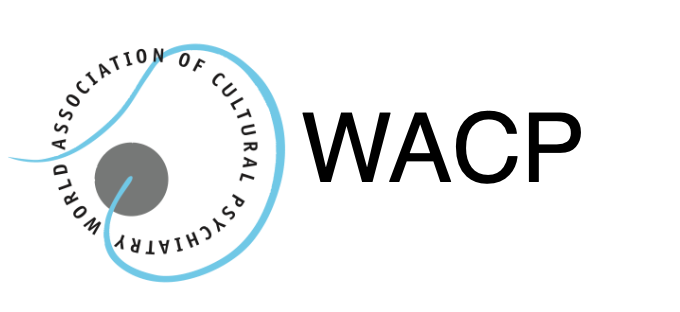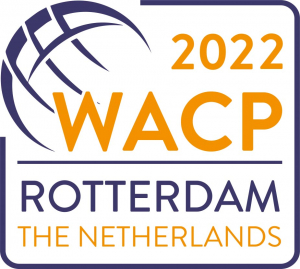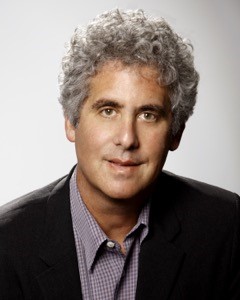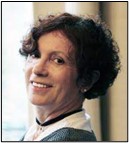(Russian and Ukrainian version see below)
The World Association of Cultural Psychiatry (WACP) condemns all non-defensive military actions and has a longstanding concern for the mental health and wellbeing of migrants and refugees, including those fleeing conflict areas. In the last decades, many military conflicts have resulted in terrible loss of life and dislocations among civilian populations around the world.
The Russian invasion of Ukraine is the most recent. Over the last few weeks, several million refugees, largely women and children, have fled from Ukraine or been displaced within the country. Thousands of casualties have been recorded and the destruction of cities has been catastrophic. This is expected to result in hundreds of thousands of individuals who will suffer from anxiety, depression, posttraumatic stress disorder, psychotic states, and suicidal ideation and behaviors. The effects on children and adolescents will be particularly severe. Further, many refugees face additional challenges of racism and discrimination.
WACP condemns all acts of killing, violence, and destruction inflicted on the peoples of Ukraine in this conflict and calls for the immediate cessation of all hostilities.
We also call on our members around the world and all mental health colleagues to provide culturally competent professional help and humanitarian assistance to the refugees and migrants displaced by this conflict and by other conflicts around the world.
The following resources on the care of migrants and refugees may be of help:
The World Mental Health Fact Sheet on Mental Health and Forced Displacement:
https://www.who.int/news-room/fact-sheets/detail/mental-health-and-forced-displacement
The Mental Health and Wellbeing Portal for Refugees & Asylum Seekers: https://www.uel.ac.uk/our-research/research-school-psychology/refugee-mental-health- wellbeing-portal
World Cultural Psychiatry Research Review: https://usercontent.one/wp/www.worldculturalpsychiatry.org/wp-content/uploads/2019/12/8.- Careif-Position-statement-on-Migration-and-Mental-Health.final_.pdf?media=1645571425
The Royal Society for Public Health Geopolitical Determinants of Health: https://youtu.be/sUWn4-nllrM
The Officers and Board of Directors of the World Association of Cultural Psychiatry
RUSSIAN VERSION
Заявление об Украине
Всемирная ассоциация культуральной психиатрии (WACP) осуждает все военные действия, не связанные с обороной, и давно беспокоится о психическом здоровье и благополучии мигрантов и беженцев, в том числе бегущих из зон конфликтов. В последние десятилетия многие военные конфликты привели к ужасным человеческим жертвам и перемещениям среди гражданского населения по всему миру.
Российское вторжение в Украину — самое последнее. За последние две недели несколько миллионов беженцев, в основном женщины и дети, бежали из Украины или были перемещены внутри страны. Были зарегистрированы тысячи жертв, а разрушение городов было катастрофическим. Ожидается, что это приведет к тому, что сотни тысяч людей будут страдать от беспокойства, депрессии, посттравматического стрессового расстройства, психотических состояний и суицидальных мыслей и поведения. Последствия для детей и подростков будут особенно тяжелыми. Кроме того, многие беженцы сталкиваются с дополнительными проблемами расизма и дискриминации.
WACP осуждает все акты убийства, насилия и разрушения, совершенные в отношении народа Украины в ходе этого конфликта, и призывает к немедленному прекращению всех боевых действий.
Мы также призываем наших членов по всему миру и всех коллег в области психического здоровья оказывать культурально компетентную профессиональную помощь и гуманитарную помощь беженцам и мигрантам, перемещенным в результате этого конфликта и других конфликтов по всему миру.
Могут оказаться полезными следующие ресурсы по заботе о мигрантах и беженцах:
Всемирный информационный бюллетень по психическому здоровью о психическом здоровье и вынужденном перемещении:
https://www.who.int/news-room/fact-sheets/detail/mental-health-and-forced-displacement
Портал психического здоровья и благополучия для беженцев и просителей убежища: https://www.uel.ac.uk/our-research/research-school-psychology/refugee-mental-health-wellbeing-portal
Обзор исследований мировой культуральной психиатрии: https://usercontent.one/wp/www.worldculturalpsychiatry.org/wp-content/uploads/2019/12/8.- Careif-Position-statement-on-Migration-and-Mental-Health .final_.pdf?media=1645571425
Геополитические детерминанты здоровья Королевского общества общественного здравоохранения: https://youtu.be/sUWn4-nllrM
Сотрудники и совет директоров Всемирной ассоциации культуральной психиатрии
Ukrainian Version
Заява щодо України
Всесвітня асоціація культуральної психіатрії (WACP) засуджує всі необоронні військові дії та давно турбується про психічне здоров’я та благополуччя мігрантів та біженців, у тому числі тих, хто тікає із зон конфлікту. Протягом останніх десятиліть багато військових конфліктів призвели до жахливих людських жертв і дислокацій серед цивільного населення по всьому світу.
Останнє – вторгнення Росії в Україну. За останні два тижні кілька мільйонів біженців, переважно жінок і дітей, втекли з України або були переміщені всередині країни. Зафіксовано тисячі жертв, а руйнування міст стало катастрофічним. Очікується, що це призведе до сотень тисяч людей, які будуть страждати від тривоги, депресії, посттравматичного стресового розладу, психотичних станів, суїцидальних думок і поведінки. Особливо серйозними будуть наслідки для дітей та підлітків. Крім того, багато біженців стикаються з додатковими проблемами расизму та дискримінації.
WACP засуджує всі акти вбивства, насильства та руйнування, заподіяні народу України в цьому конфлікті, і закликає до негайного припинення всіх бойових дій.
Ми також закликаємо наших членів у всьому світі та всіх колег з питань психічного здоров’я надавати культурально компетентну професійну допомогу та гуманітарну допомогу біженцям і мігрантам, переміщеним через цей конфлікт та інші конфлікти по всьому світу.
Допомогою можуть стати наступні ресурси з догляду за мігрантами та біженцями:
Всесвітній інформаційний бюлетень про психічне здоров’я та примусове переміщення:
https://www.who.int/news-room/fact-sheets/detail/mental-health-and-forced-displacement
Портал про психічне здоров’я та добробут для біженців і шукачів притулку: https://www.uel.ac.uk/our-research/research-school-psychology/refugee-mental-health-wellbeing-portal
Звіт з досліджень Всесвітньої асоціації Культуральної психотерапії: https://usercontent.one/wp/www.worldculturalpsychiatry.org/wp-content/uploads/2019/12/8.- Careif-Position-statement-on-Migration-and-Mental-Health .final_.pdf?media=1645571425
Королівське товариство громадського здоров’я, геополітичні детермінанти здоров’я: https://youtu.be/sUWn4-nllrM
Співробітники та Рада директорів Всесвітньої асоціації культуральної психіатрії



